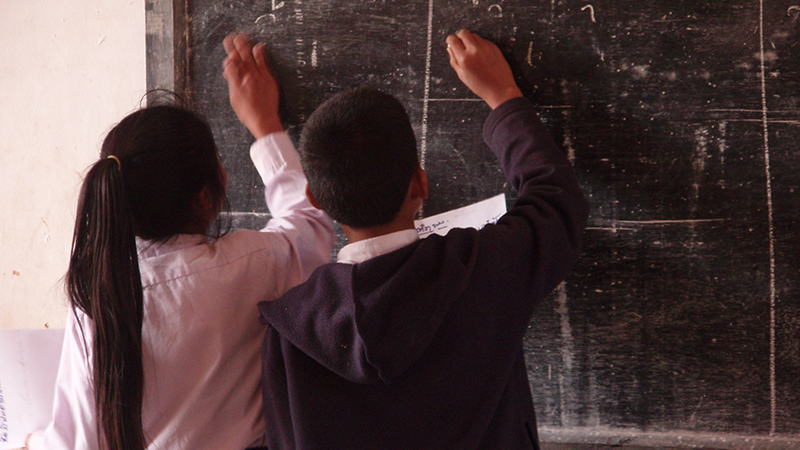How technology is changing what we remember
Is tech helping human memory or hindering it?
Total recall
Apps like Evernote and team collaboration tools such as Slack and Trello free up the ridiculous amount of time it can take to track down pesky snippets of information by making it intuitive to find them. Since its inception in 2008, note-taking service Evernote has been busy building a base of more than 100 million users who are probably best described as converts, such is their commitment to the Evernote way of never forgetting.
Slack, founded in 2013, and Trello, in 2011, are often mentioned in the same breath, Slack standing for Searchable Log of All Conversation and Knowledge, and Trello being a web-based project management system. These apps can be seen as the direct descendants of Google searches – taking those initial instincts to bookmark or even (lest we forget) physically write down entire URLs in a separate notebook to return to later. Although each app serves different purposes, their end goal is the same: increase productivity and reduce time spent remembering.
The numbers are persuasive. Slack users claim that using the app results in 25 percent fewer meetings, a 48 percent reduction in internal emails and a 32 percent increase in productivity.
James Sherrett, Slack’s senior manager of accounts, said the changes Slack makes to its users’ memories are very specific to different individuals, but he added: “One of the things Slack users consistently tell us is that having Slack for all their team communication is like having a searchable, external super brain. They can trust that anything they need to know is in Slack – it's all pulled together into one place and searchable.”

I asked Sherrett if he thinks there's a risk of losing other skills when we don’t need to remember as often. He told me: “Rote memorization used to be a skill taught in schools and valued in adults. Being able to recite a speech from memory or cite a fact was considered a marker of intelligence.
“But that's changed. We no longer teach rote memorization in schools. We teach ways to recall and search for information. This change has coincided with the increasing use of computers to store and manage information. And computers are very good at storing and managing information, and our brains are very flexible in how they adapt to get the information they need.”
There it is again – that emphasis on storing the memory away, instead of having it just to hand. I turned to Cascio to find out what he thinks of the rise in technology of Evernote, Slack, Trello et al, and whether they are making subtle or seismic changes to our memory.
Get daily insight, inspiration and deals in your inbox
Sign up for breaking news, reviews, opinion, top tech deals, and more.
Clippy for a new millennium
“The impact of these apps is an interesting dilemma, and one without an obvious ‘right’ answer,” Cascio said.
“Precision of memory is probably the greatest advantage these apps have over human ‘meat’ memory – our brains are notoriously bad at remembering the fiddly little details of things, and it’s commonly understood that when we remember something, our brains are functionally remembering the last time we remembered it, allowing errors to creep in. With an app, the accurate details are preserved.
“Our evolved biological brains still excel over digital memories: inference-based recall. It’s the ‘that reminds me of something…’ moment – the new recollection may not be directly related to what you were thinking about, but contains some non-obvious triggers for a link.
“This is all moving towards a world where recollection from a memory locker app wouldn’t require an active search. Imagine an app that pays attention to what you’re writing or saying and offers (in a non-obtrusive way) relevant items from your stored memories. Something like this would really serve as a brain co-processor, and not just a data dumpster.
"If it works, it would be like an extension of your own mind; if it doesn’t, it would be like Clippy with a power rating of over 9,000. ‘You appear to be engaged in a romantic encounter. Here’s a list of all of the times you’ve said the wrong thing during a make-out session’.”
More room for the good stuff
Following the release of her study in 2011, Sparrow emphasised in interviews that “memory is so much more than memorisation”. She argued that this shift away from memorising may ultimately help people improve their comprehension and become better learners. The Google effect may allow us to free up more space on our internal hard drives, and focus on processing as opposed to memorising.

When we're no longer expected to remember birthdays, postcodes, kings and queens, or even the century a country was founded in, are we saying goodbye to depth and fluidity? Are the days of serendipitous thoughts, malapropisms and parallel thinking over? Or does it leave our fervently human brains with more room for these very freedoms?
Certainly, all these promises to Keep Track Of Everything and Never Forget (claims made by Trello and Evernote respectively) can feel tempting. But for anyone who's grown up straddling two centuries, there’s something inherently human in being forgetful. While memories of a time without smartphones or Wi-Fi grow fainter, there’s something wonderfully comforting in not remembering every detail. Because, after all, we’re only supposed to recall what was truly memorable.
Ava Szajna-Hopgood is a freelance writer and marketing and communication specialist with a passion for the creative industries. She worked as Features Editor for Urban Junkies for two years writing weekly trends, restaurant reviews and travel guides.
